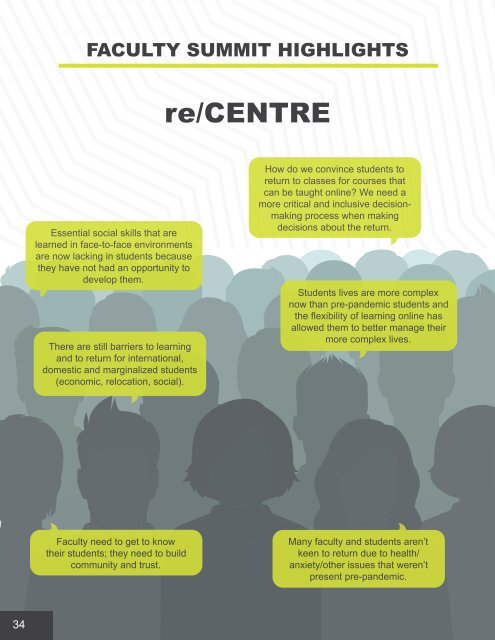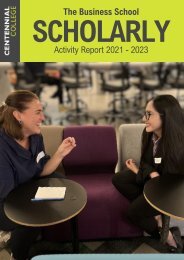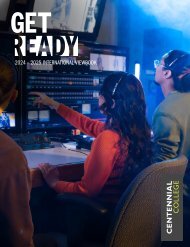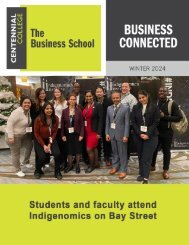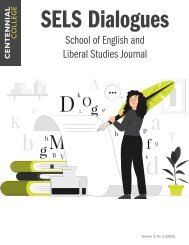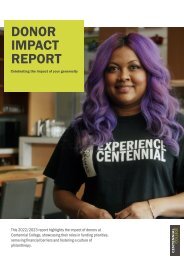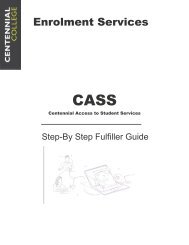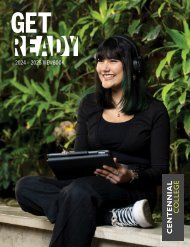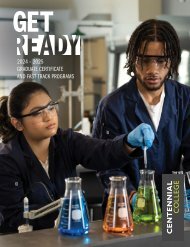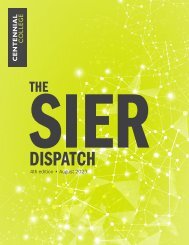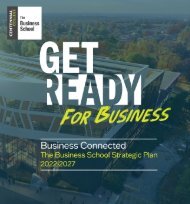The Teaching and Learning Innovation Digest - May 2023
Welcome to a truly special edition of the Teaching and Learning Innovation Digest! Our seventh annual academic publication has assumed an incredibly meaningful shape and form for a number of reasons. Not only did we receive an enthusiastic response with over 30 submissions via our institutional broadcast, but we also have consciously and intentionally embraced the principles of Universal Design for Learning by attempting to represent and celebrate the varied forms of expressions therein. From reflective essays, poetry, visual and performing arts, podcasts, video conversations to scholarly work, academic and applied research, news and updates, and interviews, this is truly a power-packed publication!
Welcome to a truly special edition of the Teaching and Learning Innovation Digest! Our seventh annual academic publication has assumed an incredibly meaningful shape and form for a number of reasons. Not only did we receive an enthusiastic response with over 30 submissions via our institutional broadcast, but we also have consciously and intentionally embraced the principles of Universal Design for Learning by attempting to represent and celebrate the varied forms of expressions therein. From reflective essays, poetry, visual and performing arts, podcasts, video conversations to scholarly work, academic and applied research, news and updates, and interviews, this is truly a power-packed publication!
Create successful ePaper yourself
Turn your PDF publications into a flip-book with our unique Google optimized e-Paper software.
FACULTY SUMMIT HIGHLIGHTS<br />
Essential social skills that are<br />
learned in face-to-face environments<br />
are now lacking in students because<br />
they have not had an opportunity to<br />
develop them.<br />
<strong>The</strong>re are still barriers to learning<br />
<strong>and</strong> to return for international,<br />
domestic <strong>and</strong> marginalized students<br />
(economic, relocation, social).<br />
Faculty need to get to know<br />
their students; they need to build<br />
community <strong>and</strong> trust.<br />
re/CENTRE<br />
How do we convince students to<br />
return to classes for courses that<br />
can be taught online? We need a<br />
more critical <strong>and</strong> inclusive decisionmaking<br />
process when making<br />
decisions about the return.<br />
Students lives are more complex<br />
now than pre-p<strong>and</strong>emic students <strong>and</strong><br />
the flexibility of learning online has<br />
allowed them to better manage their<br />
more complex lives.<br />
Many faculty <strong>and</strong> students aren’t<br />
keen to return due to health/<br />
anxiety/other issues that weren’t<br />
present pre-p<strong>and</strong>emic.<br />
FUNDAMENTALS OF OCAP<br />
Rethinking research with First Nations communities<br />
Jennifer Easter<br />
Librarian, School of Community <strong>and</strong> Health Services (SCHS)<br />
<strong>and</strong> School of Transportation (SOT)<br />
In November 2022, 10 participants from<br />
Centennial’s Library <strong>and</strong> <strong>Learning</strong> Centres<br />
(LLC) <strong>and</strong> Centre for Faculty Development<br />
<strong>and</strong> <strong>Teaching</strong> <strong>Innovation</strong> (CFDTI) signed<br />
up to complete the Fundamentals of OCAP<br />
course offered by the First Nations Information<br />
Governance Centre (FNIGC). Developed <strong>and</strong><br />
delivered in partnership with Algonquin College,<br />
Fundamentals of OCAP is the FNIGC’s first<br />
online training program. <strong>The</strong> course is a<br />
comprehensive review of the principles of<br />
OCAP—Ownership, Control, Access, <strong>and</strong><br />
Possession—in regards to the “collection, use<br />
<strong>and</strong> disclosure of data or information regarding<br />
First Nations” (Algonquin College <strong>and</strong> First<br />
Nations Information Governance Centre, n.d.).<br />
<strong>The</strong> course was an opportunity for participants<br />
to study these principles in-depth, to engage<br />
<strong>and</strong> (for some participants) reengage in these<br />
principles, <strong>and</strong> consider how they apply<br />
to Indigenous research <strong>and</strong> their work at<br />
Centennial. This work aligns with Centennial’s<br />
Indigenous Strategic Framework which<br />
supports the undertaking of research <strong>and</strong><br />
scholarship that acknowledges Indigenous<br />
research practices. Over the course of seven<br />
asynchronous modules, participants learned<br />
about the principles of OCAP, the harm that<br />
can be done to a First Nations community<br />
when OCAP principles are not applied to<br />
research, <strong>and</strong> how OCAP principles can<br />
be applied to create a research project<br />
that supports both First Nations <strong>and</strong> the<br />
researchers, among other topics.<br />
34<br />
35


